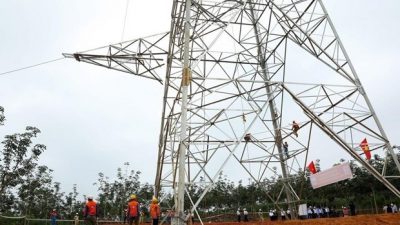
|
Outstanding achievements in gender equality in ethnic minority and mountainous areas have been recorded during the 2015-2019 period, according to the latest figures on women and men of ethnic minorities in Vietnam. |
|
The figures were announced on August 4 with the release of two reports: “Figures on Ethnic Minority Women and Men in Vietnam, 2015-2019” and “Policy Brief: Gender issues in ethnic minority areas in Vietnam”, which were developed by the United Nations Entity for Gender Equality and the Empowerment of Women (UN Women) in coordination with the Institute of Labour Science and Social Affairs under the Ministry of Labour, Invalids and Social Affairs (ILSSA-MOLISA), and the Department of Ethnic Minority Affairs under the Committee for Ethnic Minority Affairs (CEMA). The launch is organised in celebration of the International Day of the World’s Indigenous Peoples on August 9. The two publications cover information on women and men of ethnic minorities in Vietnam for the 2015-2019 period, including gender analysis outcomes and providing policy recommendations for gender equality promotion in ethnic minority areas across the country. Disaggregated gender data analyses showed outstanding achievements in gender equality in ethnic minority and mountainous areas in the period, with the percentage of ethnic minority households with access to the internet having increased 9.4 times from 6.5% in 2015 to 61.3% in 2019 and the average income per capita per month of ethnic minorities in 2018 having increased 1.8 times in four years, while the average monthly income per capita of ethnic minority female-led households was always higher than that of male-led households. Some other notable results include the proportion of children attending school at the right age increasing by 15.2% between 2015 and 2019; and the percentage of ethnic minority people participating in health insurance reaching 93.5%, with no difference between men and women. The reports also highlighted persistent gender issues in ethnic minority and mountainous areas which are affecting women and girls. The analysis found that female ethnic minority workers are more likely to undertake insecure jobs and are more vulnerable in the workplace than their ethnic minority male and female Kinh counterparts. In addition, while the percentage of ethnic minority women aged 10-49 who give birth at health facilities reached 86.4%, this figure remains significantly lower than the over 99% rate among Kinh women. Bui Ton Hien, Director of ILSSA-MOLISA said that in ethnic minority communities, women and girls are often more disadvantaged regarding accessibility to opportunities and resources due to social norms which impose an inferior position to them, limit them within birth delivery and household production activities. The intersection of various forms of gender and ethnicity-based discrimination bears the most impact, he said. Luu Xuan Thuy, Director of Ethnic Minority Affairs Department – CEMA highly praised UN Women’s technical contribution, saying that gender equality analyses in ethnic minority areas are fundamental information and useful for stakeholders in designing policies and intervention programmes to ensure that ethnic minority women are not left behind in the country’s sustainable development process. Elisa Fernandez Saenz, UN Women Representative in Vietnam, said that the objective of the reports is to provide stakeholders with a clearer picture on the current gender equality situation in ethnic minority areas in Vietnam, wherein gender issues are being well addressed by the government, but require further efforts for intervention in the areas of both policy and programme. UN Women believes that these reports will contribute to filling the gap of gender statistics among ethnic minority groups in Vietnam, and to the progress of promoting socio-economic and sustainable development in ethnic minority areas, the UN official stated. Source: Nhan Dan Online |

